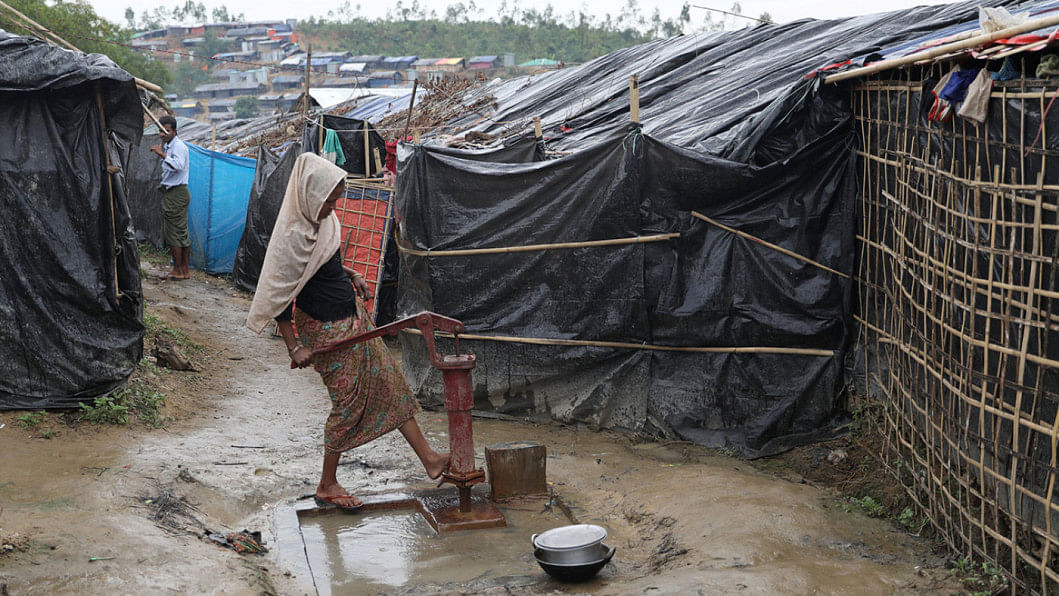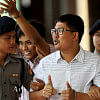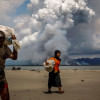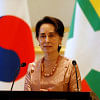Unicef concerned over high level water contamination at Rohingya camps

"... a total of 36,096 AWD cases were reported including 10 related deaths," says Unicef in a press release.
Unicef has shown a deep concern over reports suggesting high levels of bacterial contamination (E.coli) from water drawn from wells inside the Rohingya refugee camps in Cox's Bazar in Chittagong.
"The latest figures from the World Health Organization (WHO) suggest that 62 percent of water available to households is contaminated," Unicef said in a press release yesterday.
Also READ: Dhaka-Naypyitaw talks begin
Some of the tube wells inside the Rohingya camps have been dug to shallower depths, have been poorly sited, are very congested and do not have safeguards in place to prevent bacterial contamination at ground level, it said.
Contamination may be being caused through poor hygiene practices such as the use of dirty containers, bad hygiene habits of the population in water handling, it added.
Between 25 August and 11 November 2017, a total of 36,096 Acute Watery Diarrhea (AWD) cases were reported including 10 related deaths, it said.
A total of 42 percent (15,206) were in the under-5 age group showing an upward trend in infection rates. Whilst the exact cause of increased cases of AWD remains uncertain, it may be linked to contaminated food or water, the press release said.
Based on an analysis of the risk, Unicef is working with the Bangladesh authorities to urgently investigate levels of contamination, and to ensure better construction practices for tube wells that meet international standards.
"We are stepping up measures to distribute water purification tablets to provide for water treatment at the household level as well as promoting good hygiene practices," Unicef said.
Since 25th August and the start of the massive influx which has seen some 621,000 new arrivals in less than three months, Unicef and partners have been working to ensure the provision of safe drinking water, latrines and sanitation systems inside the refugee camps, it said.
Currently, the UN agency is distributing around 195,000 liters daily to over 50,000 people through water treatment and trucking; additionally, we have installed more than 420 tube wells serving some 140,000 people, according to the press statement.

 For all latest news, follow The Daily Star's Google News channel.
For all latest news, follow The Daily Star's Google News channel. 








Comments